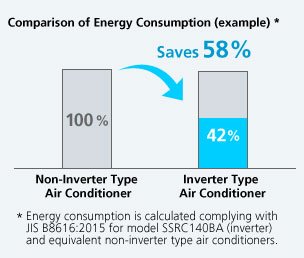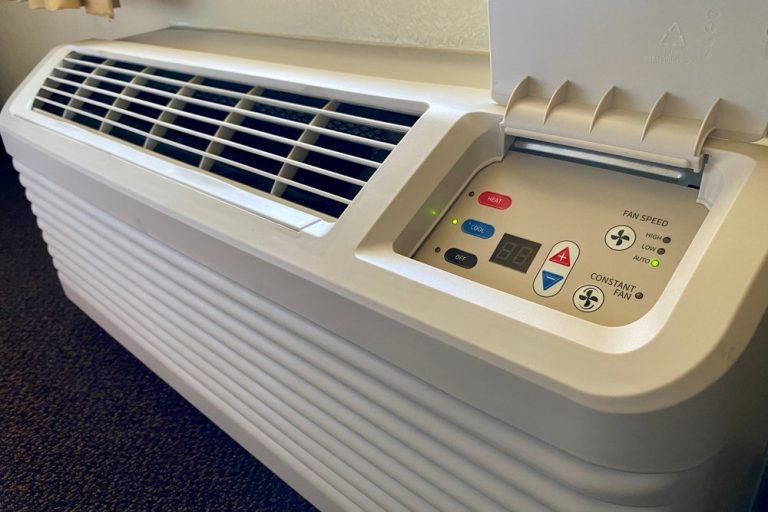Air Conditioning Causing Headaches? Discover Effective Solutions Here
Yes, air conditioning can potentially cause headaches. Factors such as air quality, temperature, and humidity levels can contribute to triggering headaches. This is why it is important to understand the potential health impacts of air conditioning and find solutions to prevent headaches.
Air conditioning, a modern luxury that brings comfort and relief on scorching summer days. But did you know that this seemingly innocent appliance may be causing you headaches? Yes, you heard it right.
The very thing that keeps you cool and comfortable might also be responsible for those irritating head-pounding episodes. But fear not, because in this article, we will explore effective solutions to this problem.
For those who regularly use air conditioning systems, headaches after prolonged exposure can be a real nuisance. And it’s not just a minor inconvenience. Headaches can affect your productivity, disrupt your daily routine, and hinder your overall well-being.
That’s why understanding the potential health impacts of air conditioning and finding solutions for preventing headaches is crucial. Now, you might be wondering, how can such a common and widely used system be responsible for headaches? Well, the answer lies in the way air conditioning affects our environment and our bodies. From the air quality to the temperature and humidity levels, all of these factors play a role in triggering headaches.
Understanding the Impact of Air Conditioning on Headaches
Air conditioning is a modern convenience that many of us rely on to beat the summer heat. However, its effects on our health and well-being are often overlooked. One common issue that people experience after prolonged exposure to air conditioning is headaches. In this section, we will delve deeper into the factors that contribute to this problem.
The Role of Air Quality
The quality of the air we breathe has a significant impact on our health. Air conditioning systems, especially those that are not properly maintained, can harbor pollutants and allergens. These contaminants can trigger allergic reactions and sinus congestion, leading to headaches. Additionally, air conditioning can cause the air to become dry, which can irritate the nasal passages and sinuses.
Temperature and Humidity Levels
Another factor that contributes to headaches caused by air conditioning is the temperature and humidity levels. Air conditioning systems often cool the air to a temperature that is significantly lower than the outdoor temperature. This drastic change in temperature can cause blood vessels in the head and neck to constrict, leading to headaches. Additionally, low humidity levels can cause dehydration, a common trigger for headaches.
The Importance of Ventilation
Proper ventilation is crucial in maintaining a healthy indoor environment. Lack of ventilation in air-conditioned spaces can lead to the buildup of carbon dioxide and other pollutants. Breathing in high levels of carbon dioxide can cause headaches and dizziness. Ensuring adequate ventilation in your home or office can help prevent these symptoms.
Preventing Headaches Caused by Air Conditioning
Now that we understand the factors that contribute to headaches caused by air conditioning, let’s explore some effective ways to prevent them:
Maintain Your Air Conditioning System
Regular maintenance of your air conditioning system is crucial to ensure optimal performance and air quality. It is recommended to have your system serviced by a professional at least once a year. This includes cleaning or replacing filters, checking for leaks, and ensuring proper airflow.
Improve Indoor Air Quality
To minimize the risk of headaches caused by air conditioning, it is important to improve indoor air quality. This can be achieved by regularly cleaning and vacuuming the space, using high-quality air filters, and considering the installation of an air purifier. Additionally, maintaining a comfortable humidity level with the help of a humidifier can also alleviate the symptoms of dryness and congestion.
Optimize Temperature and Humidity
Setting the temperature and humidity levels of your air conditioning system to comfortable and consistent levels can help prevent headaches. Avoid drastic temperature changes and consider using a programmable thermostat to maintain a steady indoor environment.
Ensure Proper Ventilation
Proper ventilation is essential to maintain good air quality and prevent the buildup of carbon dioxide. Open windows and doors whenever possible to allow fresh air to circulate. If natural ventilation is limited, consider using fans or installing a mechanical ventilation system.
Take Regular Breaks
If you spend long hours in an air-conditioned environment, it is important to take regular breaks. Step outside to get some fresh air and allow your body to adjust to the outdoor temperature. This can help prevent the sudden changes in temperature and humidity that can trigger headaches.
Stay Hydrated
Dehydration can worsen the symptoms of headaches. Make sure to drink an adequate amount of water throughout the day, especially when you are exposed to air conditioning for an extended period. This will help keep your body hydrated and prevent dehydration-related headaches.
While air conditioning brings relief from the heat, it can also cause headaches if not properly managed. By understanding the factors that contribute to these headaches and implementing preventive measures, you can enjoy the comfort of air conditioning without the unwanted side effects. Regular maintenance, improving indoor air quality, optimizing temperature and humidity, ensuring proper ventilation, taking breaks, and staying hydrated are all essential in preventing headaches caused by air conditioning.
What causes headaches? – Dan Kwartler
Why does air conditioning cause headaches?
Can air conditioning cause dehydration?
How to prevent headaches caused by air conditioning?
Can air conditioning worsen existing headaches?
Are there any long-term effects of air conditioning on headaches?
Final Words: Preventing Headaches Caused by Air Conditioning
In conclusion, prolonged exposure to air conditioning can lead to headaches due to various factors. The quality of indoor air plays a crucial role, as poorly maintained systems can harbor pollutants and allergens that trigger allergic reactions and sinus congestion.
Additionally, air conditioning can cause dry air, irritating the nasal passages and sinuses. Temperature and humidity levels are also significant factors, as the drastic change in temperature and low humidity can constrict blood vessels and cause dehydration, both of which can lead to headaches.
Proper ventilation is essential to prevent the buildup of carbon dioxide and other pollutants that can cause headaches and dizziness. To prevent headaches caused by air conditioning, it is important to maintain your system regularly, including cleaning or replacing filters and ensuring proper airflow. Improving indoor air quality through regular cleaning, using high-quality air filters, and considering the installation of an air purifier can also minimize the risk of headaches.
Setting temperature and humidity levels to comfortable and consistent levels, as well as ensuring proper ventilation through open windows or mechanical systems, can help prevent headaches. Taking regular breaks and stepping outside for fresh air can also prevent sudden changes in temperature and humidity. Staying hydrated by drinking enough water throughout the day is crucial to prevent dehydration-related headaches.






